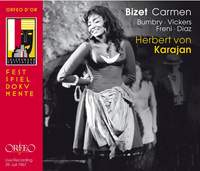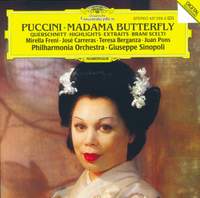
Mirella Freni (Soprano)
Born: 27th February 1935, Modena, Italy
Died: 9th February 2020, Modena, Italy
Nationality: Italian
Freni was born in Modena in 1935 and made her professional operatic debut in her hometown in 1955, as Micaëla in Bizet’s Carmen; she came to international prominence five years later when she sang Zerlina at Glyndebourne, returning in 1962 as Mozart's Susanna and as Adina in Franco Zeffirelli’s production of L’elisir d’amore; though Freni became increasingly associated with Verdi and Puccini as her career progressed, she continued to sing Mozart’s soubrettes for several decades, bringing irresistible charm and sensuality to the role of Susanna in Jean-Pierre Ponnelle’s film of Le nozze di Figaro in 1976.
Browse: Mirella Freni
Further Reading: Mirella Freni
Obituary,
Mirella Freni (1935-2020)
The Italian soprano, who was widely recognised as one of the finest Verdi and Puccini singers of the twentieth century, has died aged 84.
Recent Best Sellers: Mirella Freni
-
29 CDs: $105.50
-
Download from Original price ($13.75) Reduced price $10.00
-
Download from Original price ($17.25) Reduced price $12.50
-
3 CDs: $33.50Download from $30.00
-
Presto CD: Original price ($15.00) Reduced price $12.00Download from $6.75
-
Download from Original price ($11.50) Reduced price $8.25
New Releases: Mirella Freni
-
Download from $10.00
-
Download from $16.00
-
View all new releases











